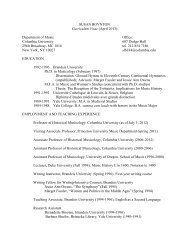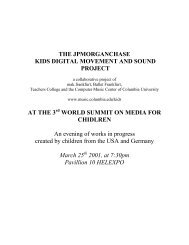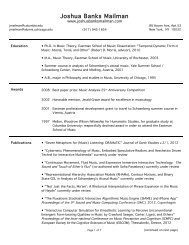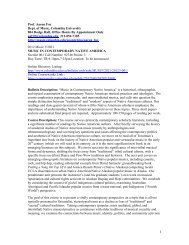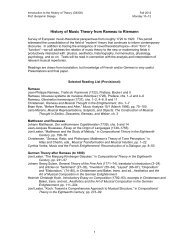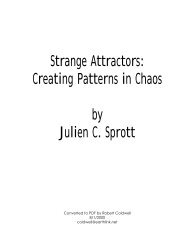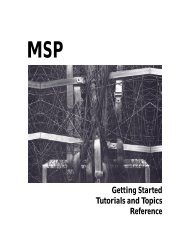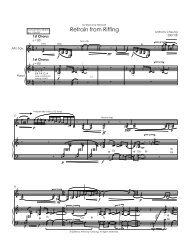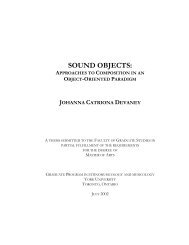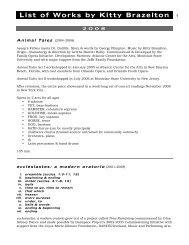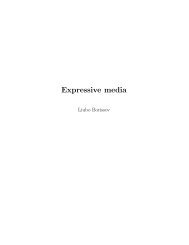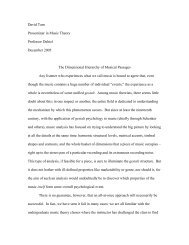Text, including the two scores - Columbia University Department of ...
Text, including the two scores - Columbia University Department of ...
Text, including the two scores - Columbia University Department of ...
Create successful ePaper yourself
Turn your PDF publications into a flip-book with our unique Google optimized e-Paper software.
piece will not merely be a demonstration <strong>of</strong> its technology, but be judged on a blank canvas <strong>of</strong> aes<strong>the</strong>tic possibility outside <strong>of</strong> its technology. Must all electronic pieces inherently be ‘about’ <strong>the</strong>ir technical systems and boundaries? This seems unfair, given that instrumental music electronic/electroacoustic<br />
generally considered that way. At some point in a traditional instrument’s development, it ceased to be an object <strong>of</strong> novelty defined by its limitations and gained some sort <strong>of</strong> common practice and style on its own, after which it gained something like a Platonic status (even though those limitations remain, isn’t<br />
just fade from consciousness). Yet is that arrival to an ideal freed from particulars only possible after an instrumental technology has stopped <strong>the</strong>y<br />
and calcified into a fixed form? One could argue that this change has begun to happen with electronic music, with digital s<strong>of</strong>tware a common platform on which to model <strong>the</strong> historical hodgepodge <strong>of</strong> analog and digital hardware, and with computer developing<br />
and operating systems coalescing into a handful <strong>of</strong> dominant platforms. Yet <strong>of</strong> course <strong>the</strong>re is always disorder and incompatibility, especially on brand new developments, before eventually becoming subsumed into <strong>the</strong> dominant high-powered workflows. If calcification is required for that Platonic s<strong>of</strong>twares<br />
it seems that electronic music is such a completely different creature from traditional instruments in that not only will it continue to change form, status,<br />
its power and ability to change and customize itself will never yield it stable enough to be widely considered as a Platonic instrument. Yet perhaps <strong>the</strong> degree to which this is true is less about dominant usage, and more about an individual development and narrative. I still feel it true for my own work, but I<br />
but<br />
67



